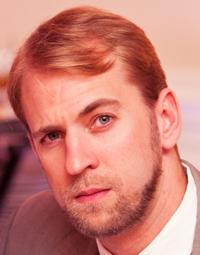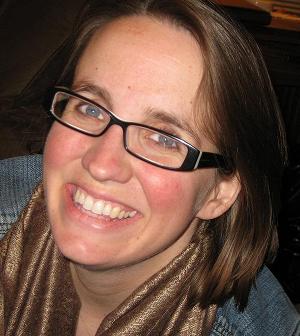| On Teaching Religious Studies |
![PDF-NOTE: Internet Explorer Users, right click the PDF Icon and choose [save target as] if you are experiencing problems with clicking.](http://rsnonline.org/templates/rsntemplate-smallmasthead/images/pdf_button.png) |
 |
Wes Goldsberry, Harvard University
On an anonymous evening during my sophomore year of college, I was enjoying one of those meandering, trenchant conversations, the kind at which nineteen-year-old liberal arts students excel. Whereas most of the dialogue in question escapes me, I can vividly recall saying at a certain point to my roommate, in an enthusiastic and epiphanic moment, “I think I just want to teach philosophy at a boarding school.” My use of the word “just” in that sentence merits some exegetical analysis; but first, a foundational remark about my sense of vocation. I always wanted to be a teacher. Specifically, I always wanted someday to teach students who were whatever age I happened to be at the time — I aspired to teach third grade when I was in the third grade, fourth grade when I was in the fourth grade, and so on. That pattern continued well into my undergraduate years and beyond: teaching high school would be okay, but to be a professor! To teach at the highest academic level — the inspiring lectures, the regalia, the “sweet schedule”...the whole notion had extraordinary appeal. It is an entirely common sentiment among college students, of course. To admire one’s professors, and (therefore, perhaps of necessity) to envy them, at least for a moment — a moment that may flicker for decades, as will the indomitable dream of academe — to reach the apex of the pedagogical pecking order; not merely to teach, but to profess. Perhaps motivated ostensibly by the love of his or her discipline alone, the average PhD applicant longs — legitimately, I think — for a tenure-track, university-level teaching position, and for all of the trappings thereunto appertaining. In my first year out of college, I found myself feebly scrambling to harvest the ambition necessary to apply to doctoral programs, soon identifying a difference between aspiration (wanting to obtain a PhD) and meta-aspiration (wanting to want to obtain a PhD), and wondering which of those two afflictions was actually mine. In the midst of that wondering there came, from seemingly every advisory corner, that famous morsel of advice, “You should only get a PhD if you can’t picture yourself doing anything else.” I had long wondered how literally that old chestnut was meant to be interpreted, and was nonplussed at how stubbornly the italicized phrase seemed to apply to all and only those career endeavors that I might find authentically fulfilling. Ready neither to pursue nor to relinquish the professorial dream, I decided I could use more time to mull things over. So I went to seminary and got a master’s degree — an MDiv, the three-year kind, to maximize discernment time. A few months before graduating, I sensed that it was going to take more than those three additional years for my PhD ambivalence to incubate and evolve into a definite desire. It was something of a bleak prospect — to find myself burned out on being a student, and yet to sense that it would never be over, so to speak, between me and the religious studies classroom. And that’s when I remembered: I think I just want to teach philosophy at a boarding school. No need to see such a career move as collapsing ten yards shy of the PhD finish line; I would merely be tabling the PhD dream for two or three years. Or thirty. I would either have found my calling, or discovered something that my calling was not; and then I could ascend the ivory tower of doctoral work, if I wanted to. It was a win-win. After six years of teaching religious studies at the secondary level, I am confident that if I am not called to this occupation, I am not called to anything. My vocational journey may eventually involve doctoral work, and — if it does — I might voluntarily and happily return to the independent-school world afterward. Some will argue that an advanced degree is wasted on a career spent languishing in the minor leagues of academia. But that metaphor’s legitimacy, I would suggest, depends on where one puts one’s emphasis: Do you want someday to teach religion, or do you want to teach religion? I have never taught at the undergraduate or graduate level; however, now matriculating at my fourth institution of higher learning, my sense is that in at least one key regard, what professors may do, mere teachers must do. Unlike a boarding school teacher, who will see and work with his or her students (for better or for worse) almost daily, a professor may (if he or she chooses) lecture and facilitate discussion in a given course once a week, and assign the students but one massive paper (due at the end of the term), causing each student’s first written feedback — in which so much of the most significant teaching consists — to arrive after the course is finished. Unlike most professors, my ongoing employment as a teacher will not depend on whether I have made published contributions to my discipline; what matters is whether my teaching effectively helps my students to think critically about religion. But what does “critical thinking” entail, and what does it look like when it is manifest within my discipline? Such questions resist easy answers; but if teaching is to have a positive, enduring impact on students’ lives, such questions must be central and thoroughly explored. And at the secondary-school level, we explore them all the time, which I love. When it comes to pedagogical discourse — to the unrelenting search for the most stimulating lesson plan, for the most meaningful assessment, for the most surefire means of imparting the intellectual skills without which students cannot adequately manipulate the content we give them — teaching high school has been the very antithesis of the minor leagues. I do not mean to suggest that one calling is “higher” than another, or that teaching at a secondary school will be equally fulfilling to all PhD candidates seeking employment as educators. Some doctoral students cannot abide engaging in academic discourse beneath a certain level; and if one’s calling and livelihood necessarily entail (for instance) the study and exposition of French post-structuralism, then one should not settle for teaching at a high school. But as for the many responsibilities unique to secondary-school teaching about which one might say, “If I taught high school, I would have to do X,” others might instead say, “I would get to do X.” I don’t teach at one of the top fifty liberal arts colleges, but I get to teach dozens of creative, motivated, and passionate students who will ultimately attend them. My school does not hand me my syllabi; I get to spend eight months teaching my own philosophy and religious studies curriculum, designed according to however I can best cultivate in my students an aptitude and enthusiasm for my discipline. I get to see the bright-eyed looks on students’ faces when they discover that “religion class” can and will be something other, and more invigorating, than Sunday school redux. Those who find such a prospect compelling, even if they’ve long planned to be professors, might just consider being teachers. |


 Wes Goldsberry is a ThM (Master of Theology) candidate at Harvard Divinity School. Following completion of a bachelor’s degree in philosophy at Davidson College and a Master of Divinity degree at Princeton Theological Seminary, Goldsberry spent six years teaching philosophy, religion, and music at Saint Andrew’s School, a coeducational boarding school in Middletown, Delaware. He also worked for two summers at the Youth Theological Initiative Summer Academy at Emory University’s Candler School of Theology. With his concentration on religion, ethics, and politics at Harvard Divinity School, his spring thesis concerns free will, doxastic voluntarism, and divine grace. Goldsberry looks forward to resuming teaching this fall.
Wes Goldsberry is a ThM (Master of Theology) candidate at Harvard Divinity School. Following completion of a bachelor’s degree in philosophy at Davidson College and a Master of Divinity degree at Princeton Theological Seminary, Goldsberry spent six years teaching philosophy, religion, and music at Saint Andrew’s School, a coeducational boarding school in Middletown, Delaware. He also worked for two summers at the Youth Theological Initiative Summer Academy at Emory University’s Candler School of Theology. With his concentration on religion, ethics, and politics at Harvard Divinity School, his spring thesis concerns free will, doxastic voluntarism, and divine grace. Goldsberry looks forward to resuming teaching this fall.
